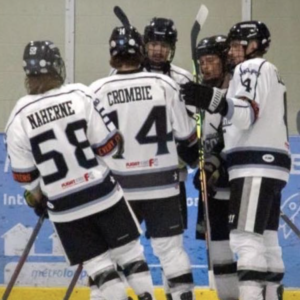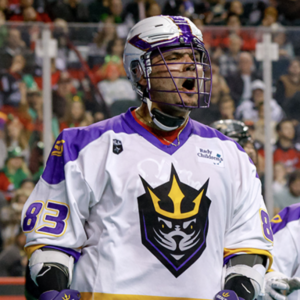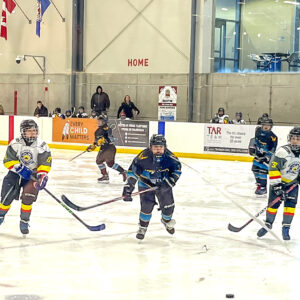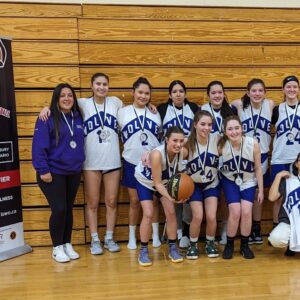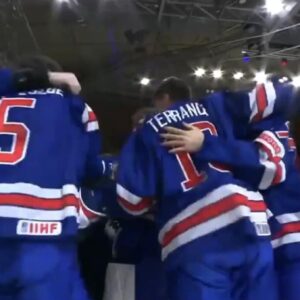Brigette Lacquette, who is a member of Cote First Nation in Saskatchewan, embraces her role when it comes to serving as a role model for young female Indigenous hockey players.
“I’m super excited to be that role model for those kids. Growing up I really didn’t have that female role model to look up to,” said Lacquette, who plays defence for the Canadian Women’s Hockey League’s Calgary Inferno. “It’s just very special for me to be that role model for young First Nation girls across Canada — Indigenous kids across Canada. I’m just super excited to be that person for them.”
Lacquette, who is 28 years-old, has quite the impressive hockey resume which includes such accomplishments as representing Team Canada in 2015 during the IIHF Women’s World Championship in Sweden which saw them win silver.
Approximately a year later, in 2016, Lacquette experienced the ultimate thrill when with the Inferno, she became part of history as she played a pivotal role in helping them defeat the Canadiennes de Montreal 8-3, to win the franchise first Clarkson Cup. Shortly thereafter things got even better for this up and coming defenseman as she officially made hockey history when in December 2017, she became the first First Nation player to ever be selected on Canada’s women’s Olympic team.
Lacquette, who was a late cut for the 2014 Canada’s women’s Olympic team, had reason to celebrate four years later as she made the team, and was on her way to represent Team Canada at the 2018 PyeongChang Olympic Winter Games, which saw them win a silver.
“To represent Canada, being the first First Nation is such an honor to me,” Lacquette said back when she was selected.
It wasn’t until approximately the age of 5 that this future Olympian began playing and developing that strong passion for hockey.
“My dad was my greatest motivator… I spent a lot of time on the outdoor rink with my dad,” she said.
Another fond memory occurred in Cote First Nation, which is just north of Yorkton Sask, where her mom grew up.
“One of my memories would be playing in the (Saskatchewan First Nations) Winter Games with the Yorkton Tribal Council,” Lacquette said. “My late grandpa was there watching. It was always nice to have him support me. He would always make it out. I know that weekend my parents couldn’t make it so my grandpa (did). Just having him there and watching the games, and spending time with him, that was one of my memories.”
Meanwhile Lacquette’s talent continued to get noticed. She played for the University of Manitoba Bisons and at the NCAA level with the University of Minnesota-Duluth, where she earned some strong praise from coach Shannon Miller.
Miller, who isn’t coaching University of Minnesota-Duluth anymore described Lacquette as “The most naturally talented player to ever come through our program.”
On the International stage, Lacquette took center stage at the 2010 IIHF World Women’s Under 18 Championships where she was voted top defenceman after assisting on the gold medal winning overtime goal.
In total, Lacquette’s International hockey resume includes a silver medal at the 2018 Pyeongchang Olympic Games, two more silvers at the 2015 and 2016 World Championships along with a bronze three years later at the World Championships in Finland.
Lacquette, who was a big fan of Nunavut’s Jordin Tootoo, had a special message for all the young indigenous hockey players,
“Never give up. You can achieve anything you put your mind to and it doesn’t matter where you come from, you can always achieve your dream,” she said.
At times growing up, Lacquette fell victim to racism while at the rink. When she was twelve, she was playing at a tournament in Winnipeg when she was faced with fans yelling, “Dirty Indian.” Along with “Go back to the reserve.” Lacquette, faced various taunts over the years from fans, opponents and even her own teammates but persevered in sticking with her passion for playing hockey and has reaped the rewards.
Lacquette is a perfect example about how hard work, a positive attitude and determination can lead to reaching those goals.



